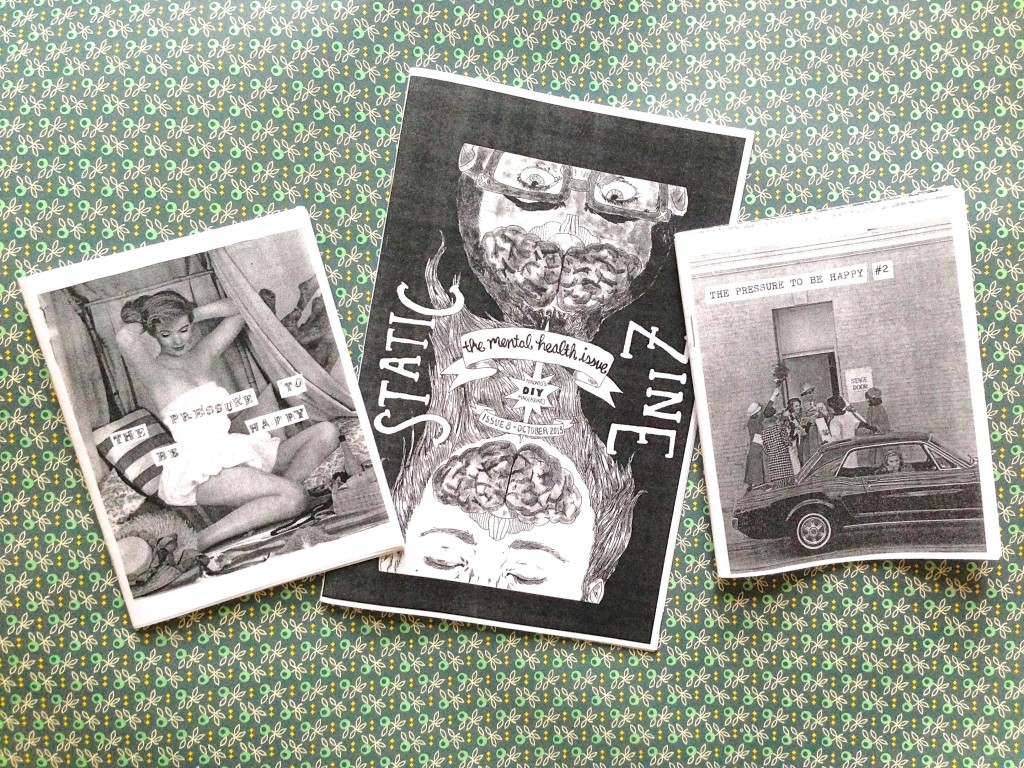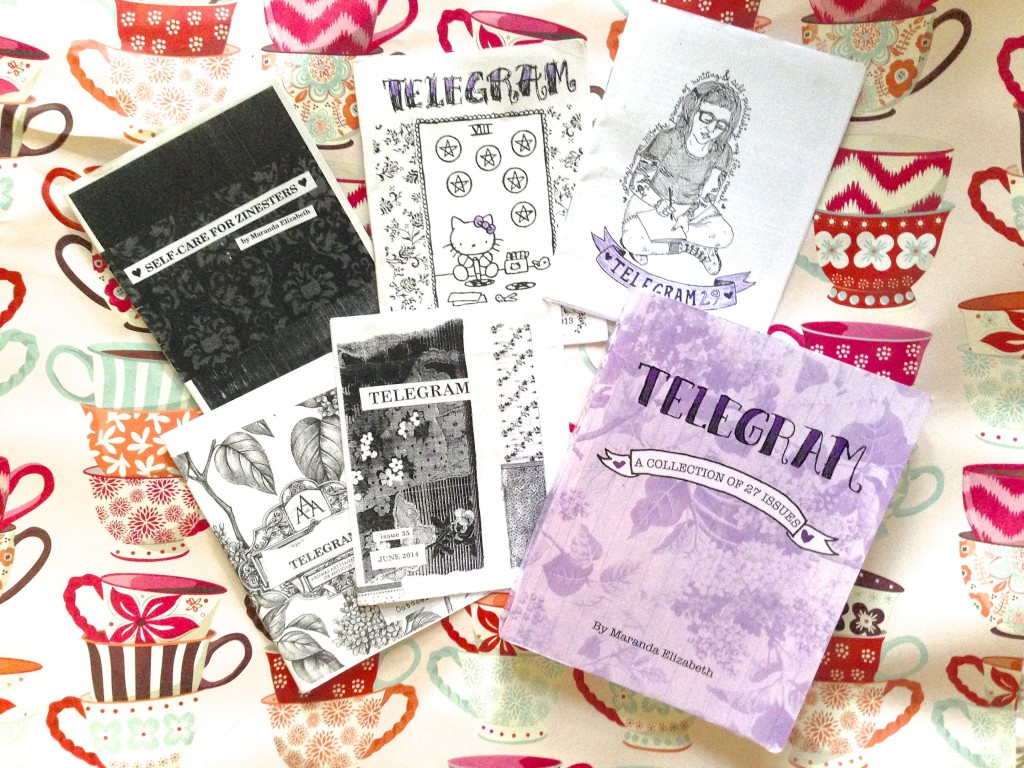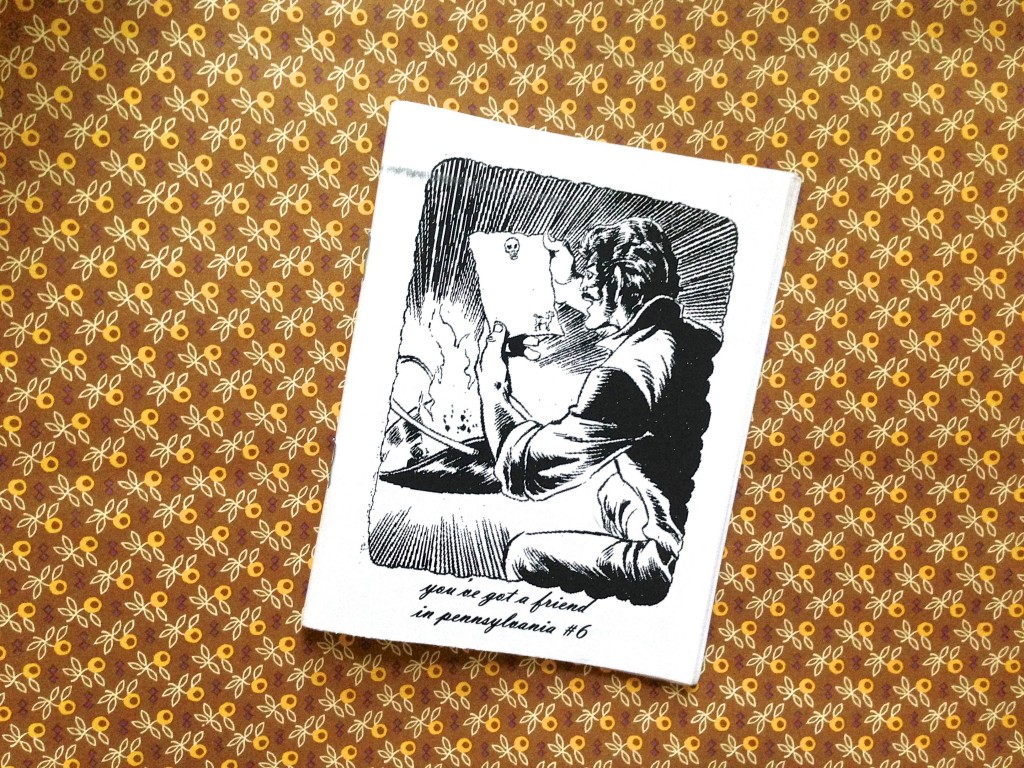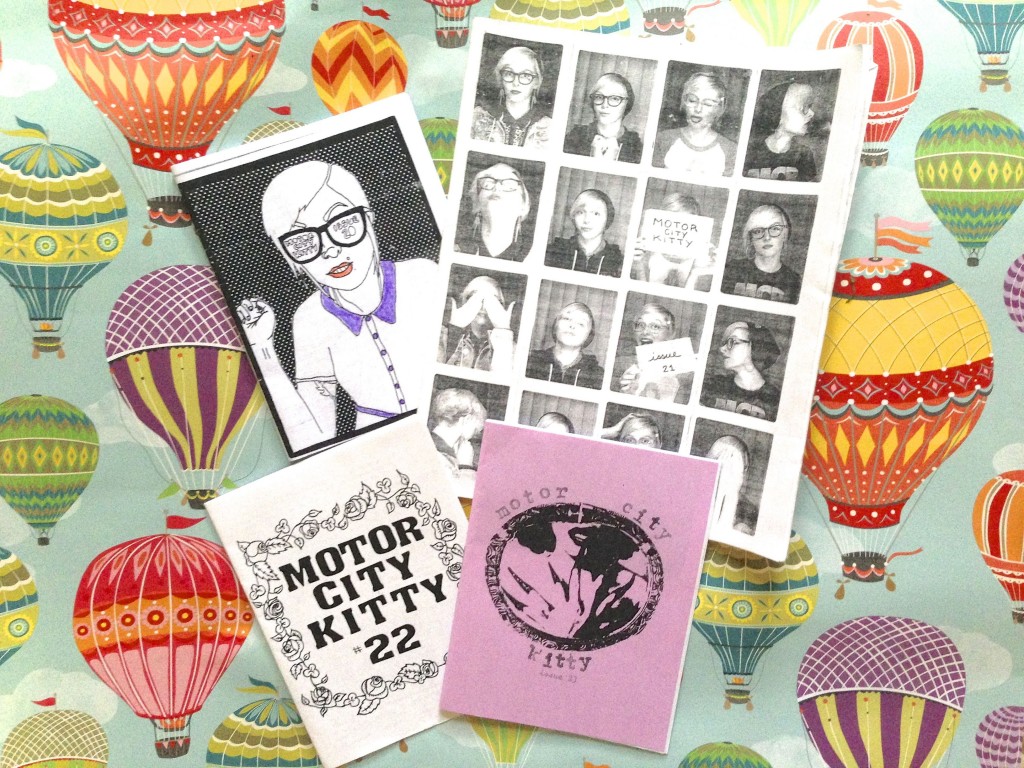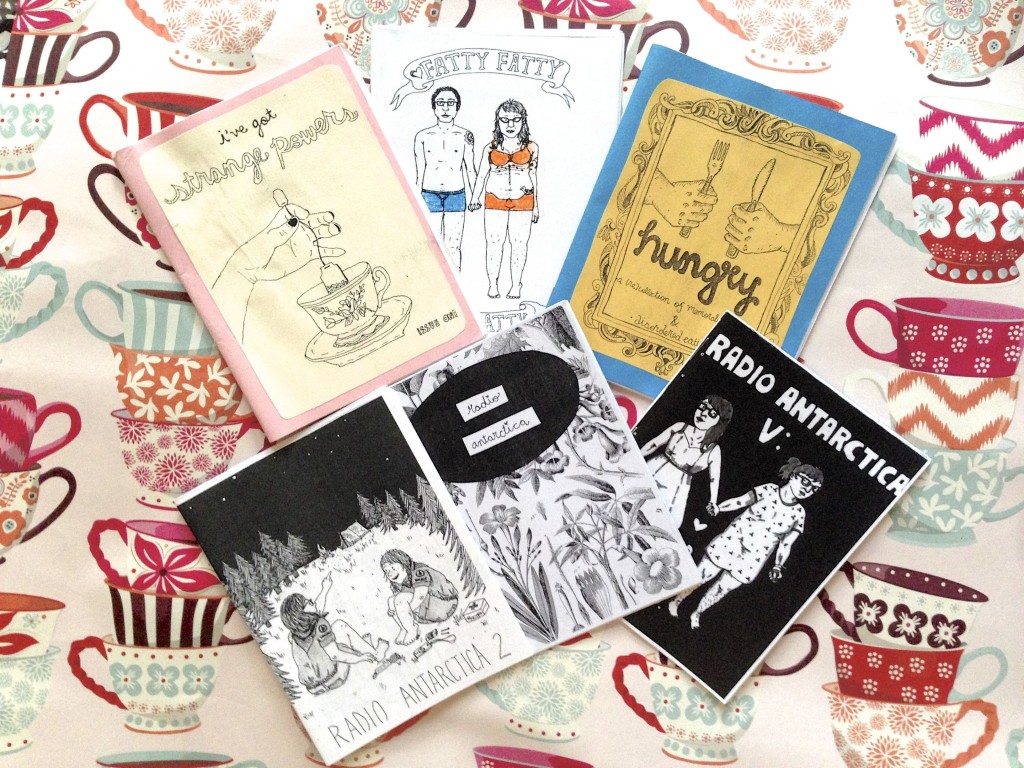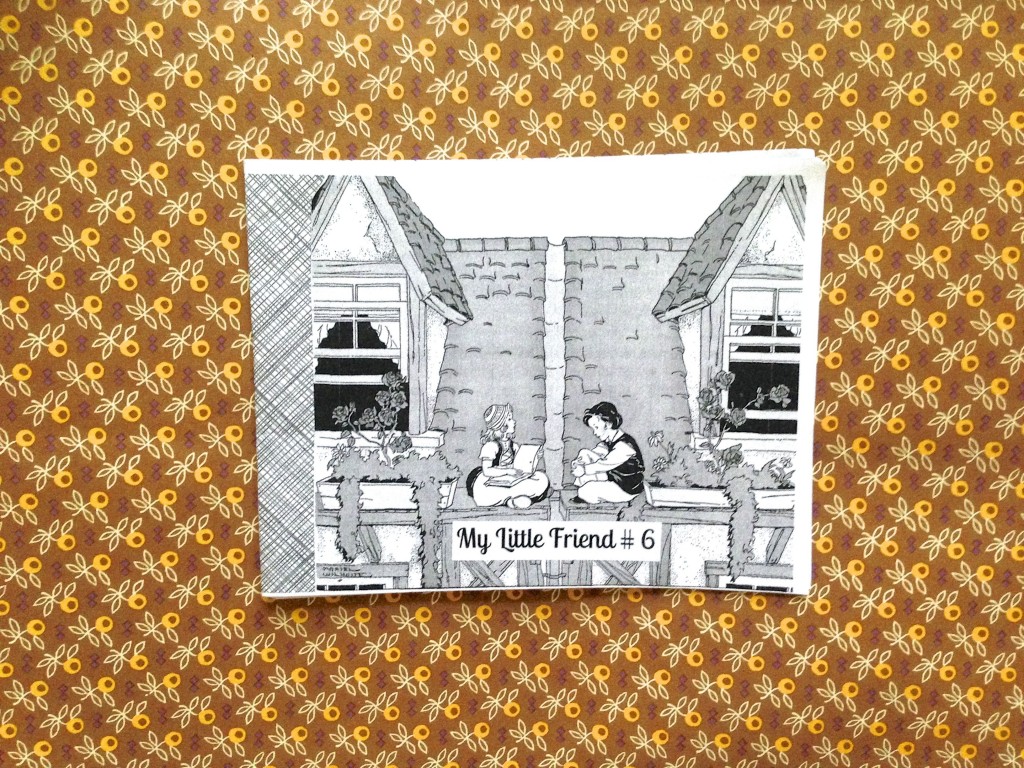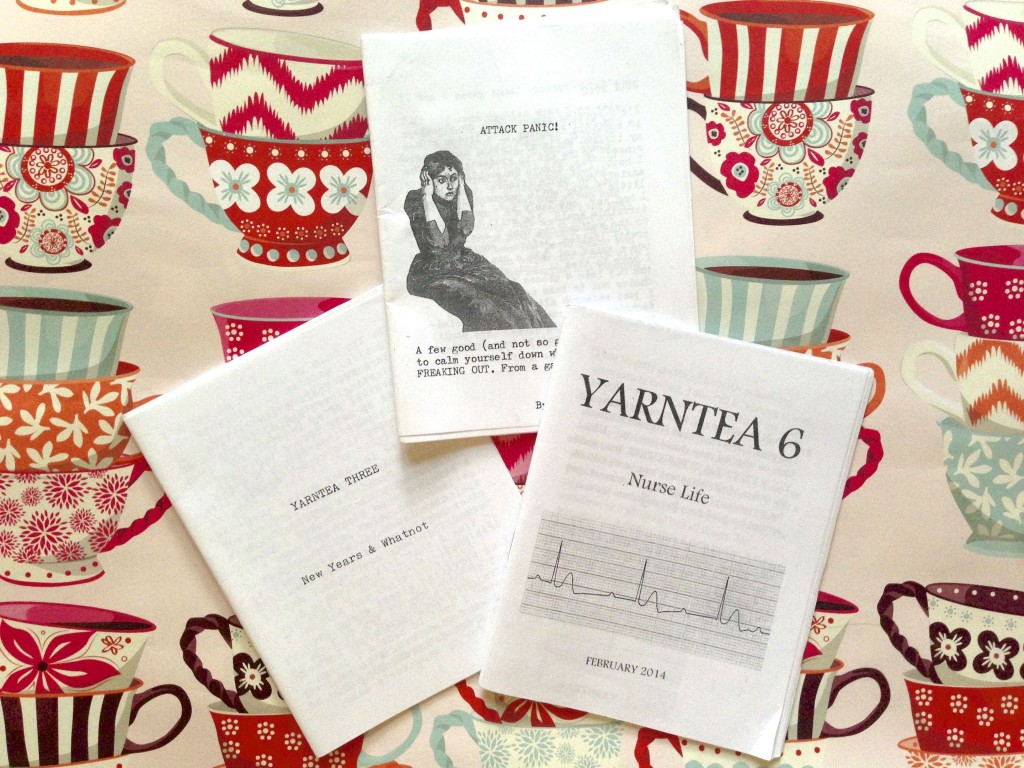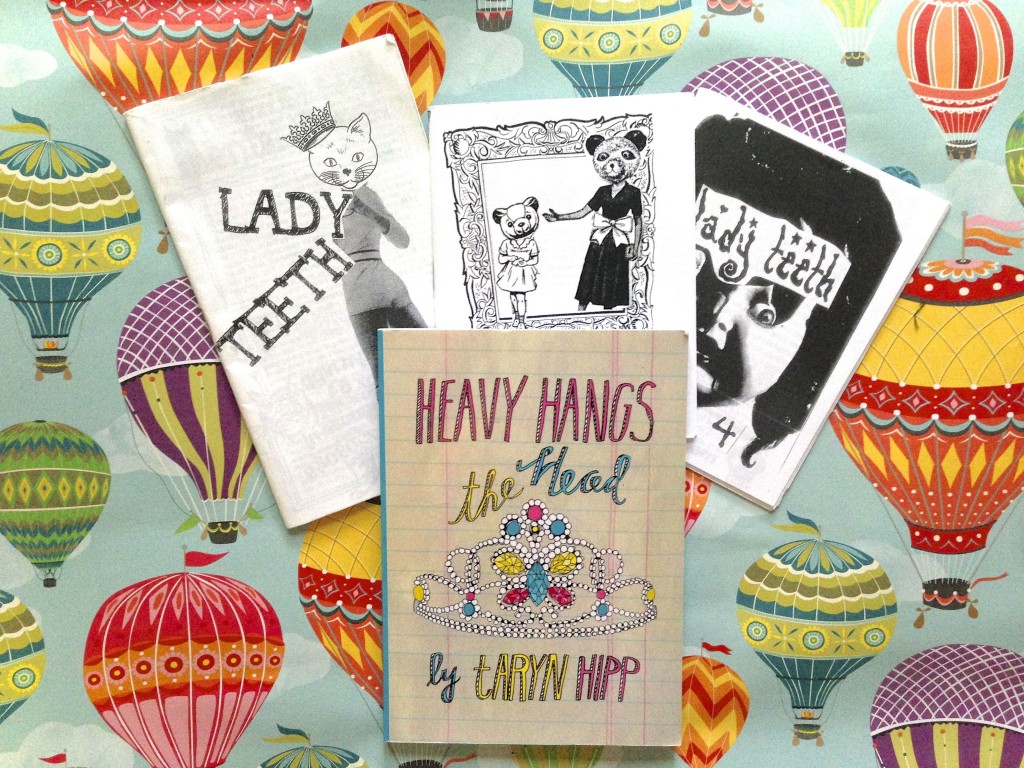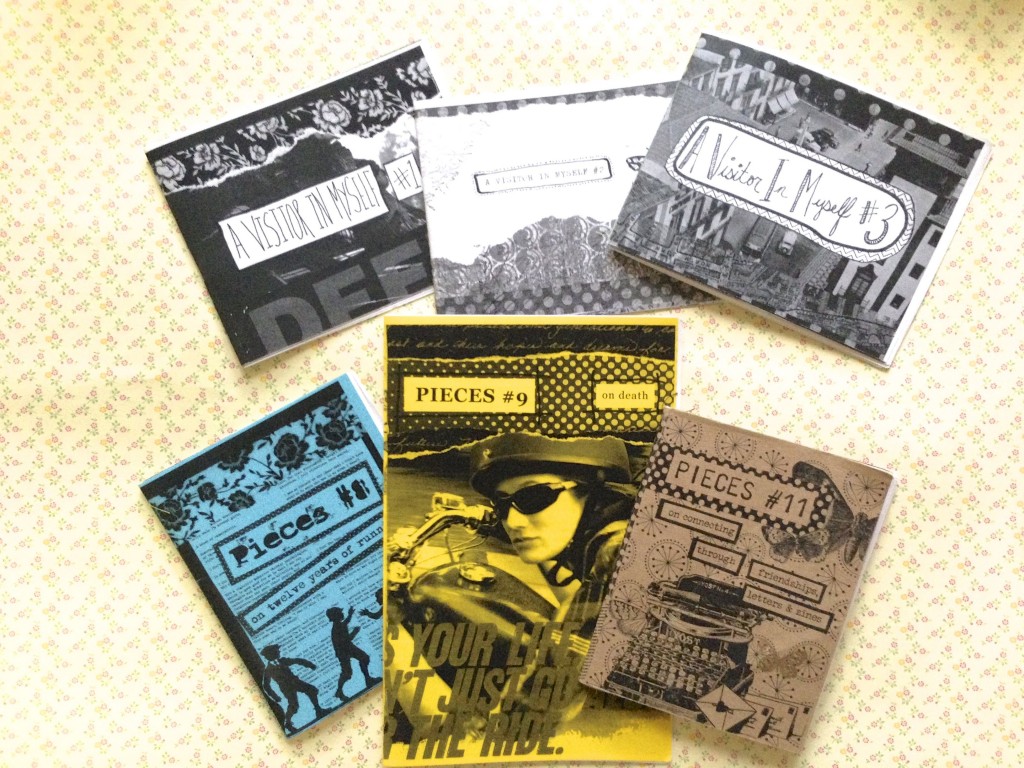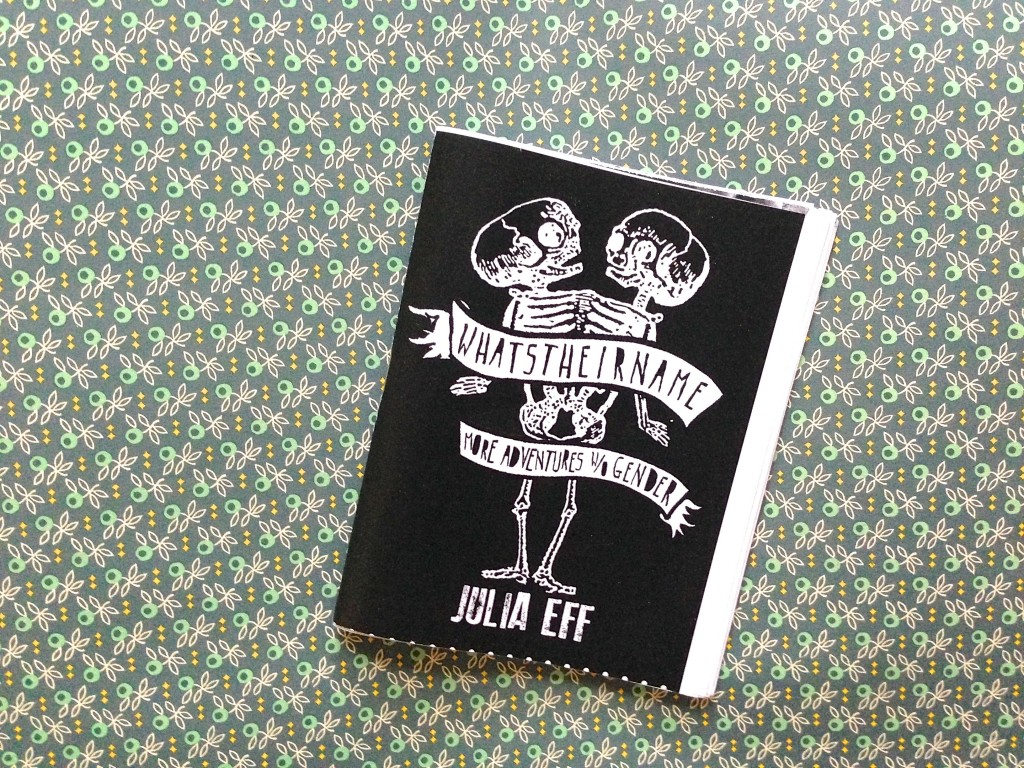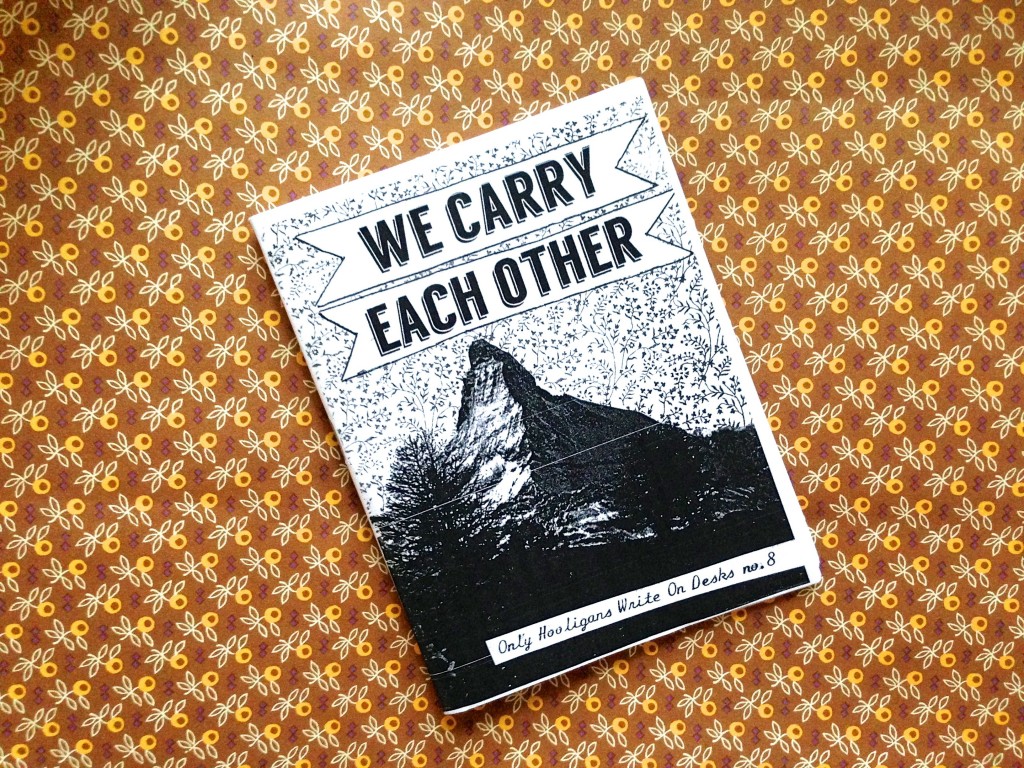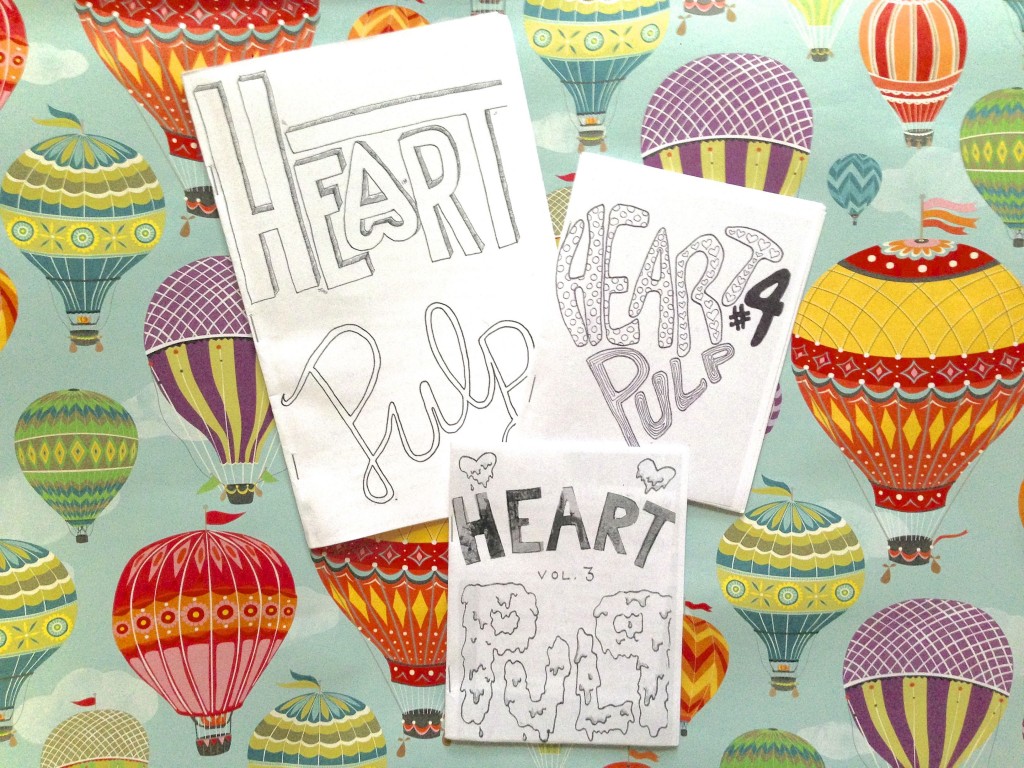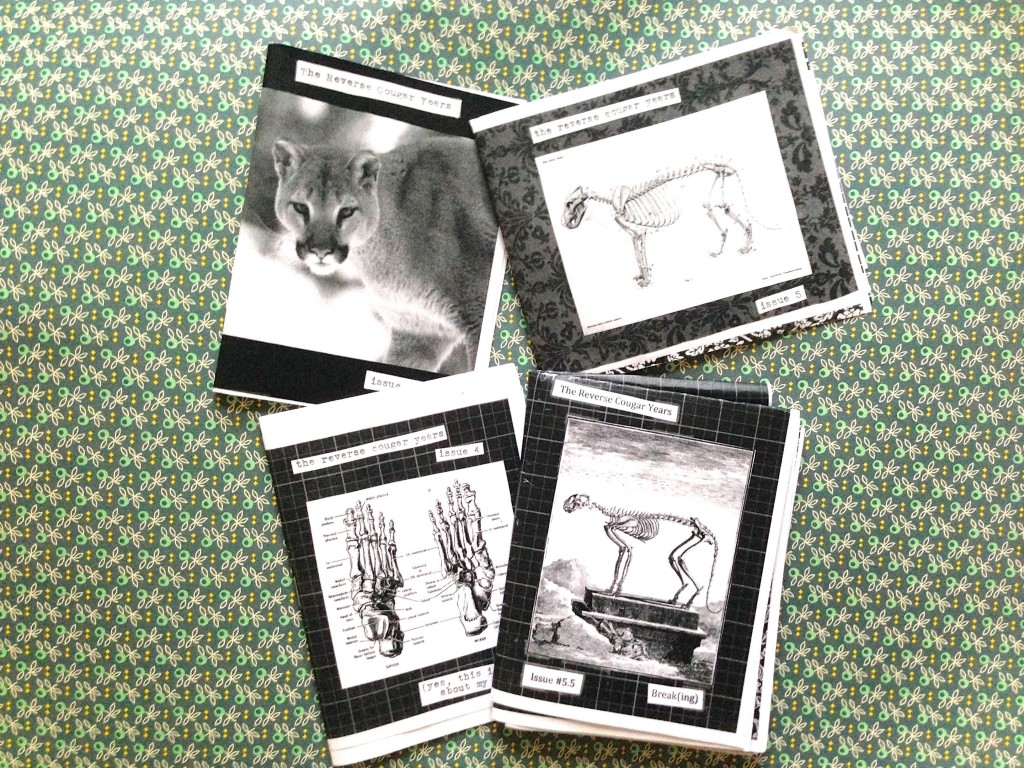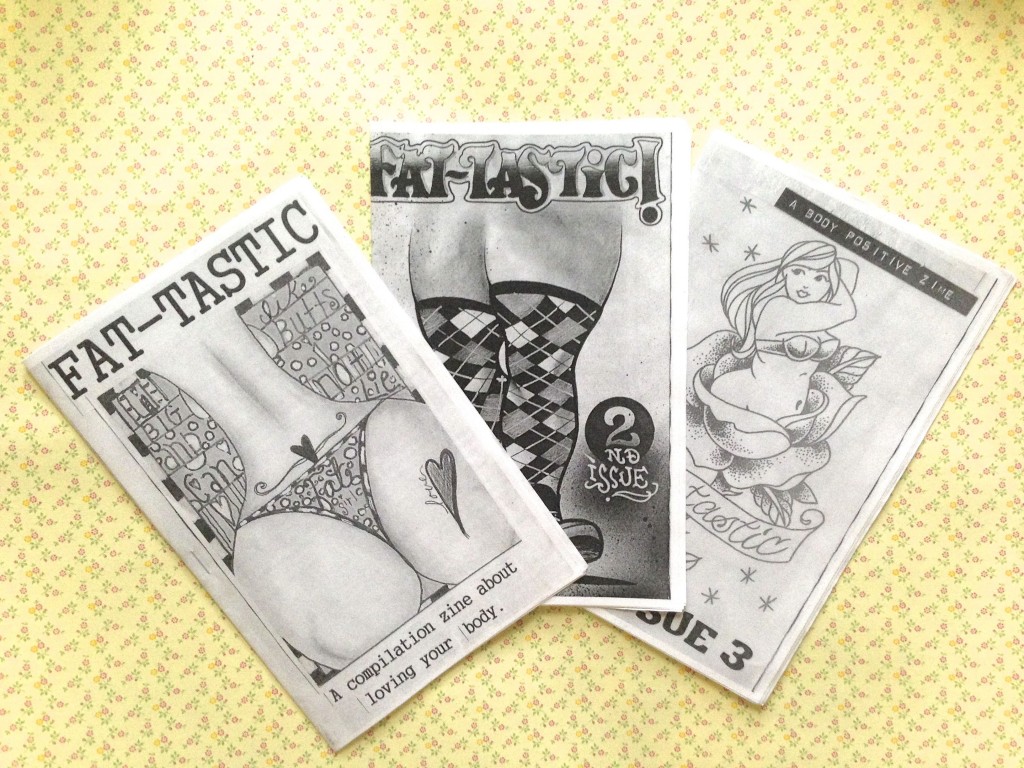**TRIGGER WARNING for mental health topics**
Reading mental health zines — first-person tales that typically focus on a person’s mental state and experiences – changed my life. I had never read anything like the personal stories in these small, photocopied publications before. I had known about them for a few years, but it was when I was at Chicago Zine Fest 2013, surrounded by tons of them, and the people who make them, that I not only saw the importance of them, but I realized I could make one too. So I did. I had never talked publicly about depression or anxiety before. It was a challenge and an incredibly liberating experience for me. I’ve made two that I classify as my own mental health zines, in which I write to understand. I’ve been an editor for another that has about 30 other peoples’ stories in it. That’s not much, but it’s something.
I like making mental health zines because I can get my voice out in a community, to connect with others who feel the same things I feel. I like making them because it’s satisfying putting words to paper. I like making them because it’s what I feel like I need to do. I like making them because I can then hold them in my hands, keep them forever, I have something to show and to share. I like making them because I can help others understand.
I like reading mental health zines because I want to know what other people are feeling and how they cope. I like reading them because I want to support the writers and keep the community alive. I like reading them because these people are fantastic writers and you wouldn’t find this kind of writing anywhere else. I like reading them because I will always be learning from them.
Crafting my own mental health zines became a cathartic outlet, allowing me to not only write to understand but to enhance emotional well-being and self-love in the process. These zines, a testament to my challenges and growth, stand as tokens of liberation I can hold in my hands and share with others. Through this medium, I’ve found solace in community, connecting with kindred spirits who share similar feelings. Reading mental health zines has become a way for me to not only support fellow writers and nurture the community but to continually learn and expand my perspective. The poignant narratives penned by these remarkable writers offer a unique window into the human experience, fostering empathy, connection, and an unending commitment to the journey of wellness and self-discovery.
One amazing thing about mental health zines is that the beauty and community they create is constant; they aren’t just a post online after a certain celebrity death about how ‘we need to keep talking about this issue.’ Because I have dealt with my own things and have a lot of friends who do too, and because I am around a lot of mental health discussions, these instances hit a sore spot with me that I still don’t fully understand. I like that people talk about it, that more people are feeling comfortable talking about it and that we can discuss seriously. When a prominent Canadian phone company has a #BellLetsTalk day, donating some cents to mental health help every time the hashtag is used, I think that’s cool, but I’m sad it’s only talked about for one day. Maybe the day after, too. Not very often do I see the people who use the hashtag heavily on one day post about the topic on the other 364 days.
I wish that we could strive to not just be informed, but to be educated, to be warriors against stigmas and to be better listeners. I don’t want to see you posting mental health hotline numbers, because I don’t think I’ll think back to that in a moment of crisis. I want to see you offering your ears, or asking questions. I want to see you considering someone else’s feelings or position before you act/speak. I want to know you are always reminded of your privilege. Because sometimes, these kinds of surroundings really affect those with mental health issues. Sometimes, it’s better to know that someone you know cares, rather than someone without a face on the other end of a phone.
So if you want to learn more about mental health, I suggest you pick up some zines. They are made year-round. They are written by highly analytic people who are living with mental health issues and are open to talking about it. You can’t get much realer than that. Some people make their own series, so you can stay up-to-date with their lives. They encourage you to talk to them. Their writing is uncensored, honest and inspiring. You can pretty much find a zine on any kind of mental health issue.
I think that the best writing out there about mental health is in photocopied form. So here are some of my favourites.
Telegram
by Maranda Elizabeth
Maranda has been writing about mental health since they were a teenager. They talk about being gender-queer, suicide, self-injury, overdoses, ableism, therapy, medication, living in psych wards and more. They have a book of their first 27 issues, and the most recent issue published is #35, which is about a recent suicide attempt. They even wrote a special one-off zine, Self-Care for Zinesters, which is a wonderful thing to keep in mind for those of us introvert-types who also write about such serious topics. In it, they wrote “Best things about making zines: Learning critical-thinking skills, learning how to be honest and write well, meeting wonderful people through snail mail and zinefests, finding magical friendships, having the guts to share my stories, encouraging others to tell their stories, learning the value of my own experiences, and knowing that DIY self-expression saves lives.” Yup.
You’ve Got a Friend in Pennsylvania / Hoax
by Sari
Sari recently sent me YGFP #6 in the mail as our first pen pal exchange. I didn’t know much about their zines, so I didn’t know what to expect. This issue is all about alcoholism and suicide and how the two have affected their family. “Writing this zine has been a means of having the chance to map the trajectory of mental health issues in my family and place myself in communal context,” they wrote. It’s an extremely emotional read, and I’m interested in reading more. Sari is also one half of Hoax zine, a bi-annual queer feminist compilation zine.
Motor City Kitty
by Brianna Dearest
Brianna’s zine is more of a general life perzine, but she writes a lot about her emotions, ruts and abusive relationships. She tells her life in stories, weaving them together to paint a perfect window for us. She finds beauty in cracks you wouldn’t first notice. I wish she wrote more often! “Take care, my friend,” she writes in the 20th issue, and you know she really means it.
Radio Antarctica / Hungry & more
by Clara Bee Lavery
Clara is the one who introduced me to zines, when we were roommates many years ago. Since then, she has published many zines and continues to be a zine queen. Hungry is her story of eating disorders. Radio Antarctica V is all about learning to love herself. She’s also written about relationships, her body, work, feelings and depression. Her accompanying illustrations are so good, and her handwriting always adds a personal touch. “I am learning to hope and hope and hope some more,” she wrote in RA5. No matter how angry she can get, she’s always hopeful.
My Little Friend
by Eryca
I picked up My Little Friend #6 at the aforementioned Chicago Zine Fest. This issue was a really interesting read for me. Eryca, someone who deals with depression and anxiety, described ending a relationship with someone who was depressed. It gave me some perspective, as at the time, I was in a relationship with that similar baseline. Eryca detailed how Daniel’s depression and lack of self-care impacted the relationship. It’s an account of feeling what someone else is feeling. I hear that. If someone is upset around me, I feel upset. And then it’s even more frustrating if they don’t acknowledge it. It can be tiring always trying to keep perspective and trying to take care of yourself. But sometimes you also need to think of how the way you’re acting affects others. Let’s find some sort of balance, why don’t we!
Attack Panic! / Yarn Tea
by Liz Mills
From Attack Panic!: “A few good (and not so good) tips to calm yourself down when you’re FREAKING OUT. From a gal who knows.” Spoiler alert, some tips are: humming, arts & crafts, tea… all of the tips are amazing. And Liz’s writing is friendly, cute and honest. If you’re someone prone to panic attacks, this would be something nice to carry around. Maybe even reading this would calm you down? If you do this, let me know.
Lady Teeth
by Taryn Hipp
Taryn writes about her past of alcoholism, depression, meds, relationships and her family for Lady Teeth and her memoir, Heavy Hangs the Head. “Depression is a motherfucker & it’s exhausting & alienating & at times, completely & utterly debilitating,” she wrote in LT #2. In that issue, she wrote a lot about how her life had never been better, but she was still feeling sad. It’s a great read and super insightful.
Pieces / A Visitor In Myself
by Nichole
Nichole and I first traded zines through our mutual ads on Tumblr, then we became pen pals, then we became real pals. In fact, she just left her visit with me yesterday. My friendship with her is magical. I’ve never connected with someone so clearly on mental health, zine, snail mail and paper craft interests so well. Our letters are long. We are able to detail our issues to each other on paper. I love reading her zines, too. She’s written a lot about depression, anxiety, meds, relationships, therapy, identity and sexuality. She has a clear grasp on her life and a level head on understanding mental health. “I’m finding more and more that you don’t really know someone unless you read their diary or their zine, even close friends,” she wrote in her most recent zine, Pieces #11. Nichole really values self-care, she makes it a priority. In AVM #3, she has a page of what she did to survive last winter. It’s followed by “Sometimes I wake up and my head feels sick. I don’t want to move, and little shadows of hopelessness settle in. I often feel this way when I’m stuck in a routine. Wake up. Go to work. Come home. Sleep. And repeat. I do what I can to spark meaning in me and indulge in this life, but some days all I can feel is defeat. That is how I learned to take a day, for myself. It is okay to be selfish in this little way; there is no malice. In order to be in a frame of mind to care for others and be the best person I can be, there are days when I will be selfish and I will not feel guilty. I will not berate myself over it.”
whatstheirname: more adventures w/o gender
by Julia Eff
Handwritten text, collages and illustrations pack each page, and this is a thick issue! This zine a very important read on what life is like for someone who lives without a gender. If you have questions, they are answered here. Julia finds fantastic ways to describe feelings and annoying situations. I am having a hard time not quoting everything in here! When detailing how they were asked how they “knew” they were trans*, they go full-force. “I guess people are worried it’s contagious or they’re gonna wake up trans* someday and not realize until it’s too late and they’ll come to in the middle of bottom surgery and go OH GOD WAIT I DON’T REMEMBER SIGNING UP FOR THIS…!” (This is horrifying that people still have to deal with this.) And then “You’ll know like you know your sexual orientation or your favourite pair of underpants. You’ll know like you just instinctively reach for your favourite childhood food when you didn’t even realize you were having a shitty day. Trust me, if this applies… you’ll know.” Julia mentions contemplating suicide because being forced to conform to a gender for a $7.50/hour job in order to stay afloat financially, when feeling like it’s so wrong, will of course be a horrible, horrible feeling. They talk about getting a tattoo of the word “depersonalization.” “My face doesn’t belong to me and I don’t even know whose hands these are or how they got at the ends of my arms. The urge to throw myself into traffic, according to my old therapist, seems to be tied to my feelings of not existing.” I’ll let you get the zine to read the rest.
Only Hooligans Write on Desks
by Terri
OHWD #8, by Terri from Vancouver, is about support. “I have several anxiety disorders, a possible personality disorder, and, ultra-rapid cycling Bipolar 1. I’ve spent the last 13 years of my life cycling from one episode to the next and remaining relatively volatile & terrified in between. I am currently unemployable.” In this issue, Terri writes about such through acknowledging privilege, discussing being on welfare, waiting for disability, and how these things affect her mental health. “Young people with severe mental illnesses don’t usually have the best homes, or, after years of waiting, there is government housing. But since we’re sick during the years people start building up decent resumes, references & credit scores, & if we are not currently earning, it can be really hard to find a place to live independently. And being dependent on family only increases stigma.”
Heart Pulp
by Mack
Heart Pulp is Mack’s missive on heartache and healing, an eating disorder, body acceptance and abusive relationships. Mack can effortlessly switch from playful to serious throughout their issues, which is comforting. They are real about challenges, but excited about the future. It’s been great to watch Mack gain confidence through their zines. My favourite page in Heart Pulp #3 is one that shows them breathing out a speech bubble with swirls of “I’m not BROKEN.” repeated. Around it: “I’ve stopped seeing these things as something that I need to find a solution and a fix for, and, instead, have accepted them as a part of who I am and how I function right now. And I have been learning ways to care for myself when they happen. And how to ask for support from others.” I met Mack at this year’s Chicago Zine Fest (I was so inspired last year, I returned), and they engaged me in a beautiful heart-to-heart conversation when I was feeling low. We didn’t know anything about each other, but after that we did. They made me feel safe.
The Reverse Cougar Years by Maxx From RCY #3: “I stopped writing zines because I was told it was selfish to want to share my thoughts, for no other reason that the fact that I enjoyed telling stories. I was young(er) and more impressionable, and I really did believe that the individual who made that comment had a point. When I stopped writing, I didn’t stop trying to get my hands on as many zines as possible: I love reading about other people’s lives, their opinions, or skills they wanted to share. Some part of me thought it was brave for a person to want to put their thoughts on paper, and I admired the zine authors I read. As I kept seeking out new zines, I finally realized there was nothing wrong with wanting to self-publish – not everything has to have an explicit point. Zines are meant to be shared, to make you feel like there are others out there like you, to meet new friends, to have a chance to express creativity, and I could go on and on – the fact is, they’re implicitly important as an art form, and I should have never stopped publishing one.” Well said, Ottawa-based sound tech Maxx. Stories of anxiety, a fractured foot, queer online dating, the punk scene and then a fractured wrist twist through Maxx’s collaged pages. I hope Maxx keeps writing.
Fat-tastic
by Sage & contributors
I grabbed copies of the first three Fat-tastic issues at the Portland Zine Symposium last month, and I felt like I was holding treasure. Here, in these pages, I could read more about other women who go through life working towards body acceptance. It’s a huge theme right now in the media it seems, so I was glad to have the topic in my favourite medium in my possession. Through writing and illustrations, Sage & her contributors give you a close look at what it’s like for them. They touch on what’s good/bad to say to fat people, clothing, actualizing for other people, being naked and much more. Fat-fucking-tastic!
~~~
My list of mental health zines can go on and on forever; I hope that it does.
If you have any questions about mental health issues and/or zines, want to trade, want to write letters, or just want to talk about stuff, please get in touch.

